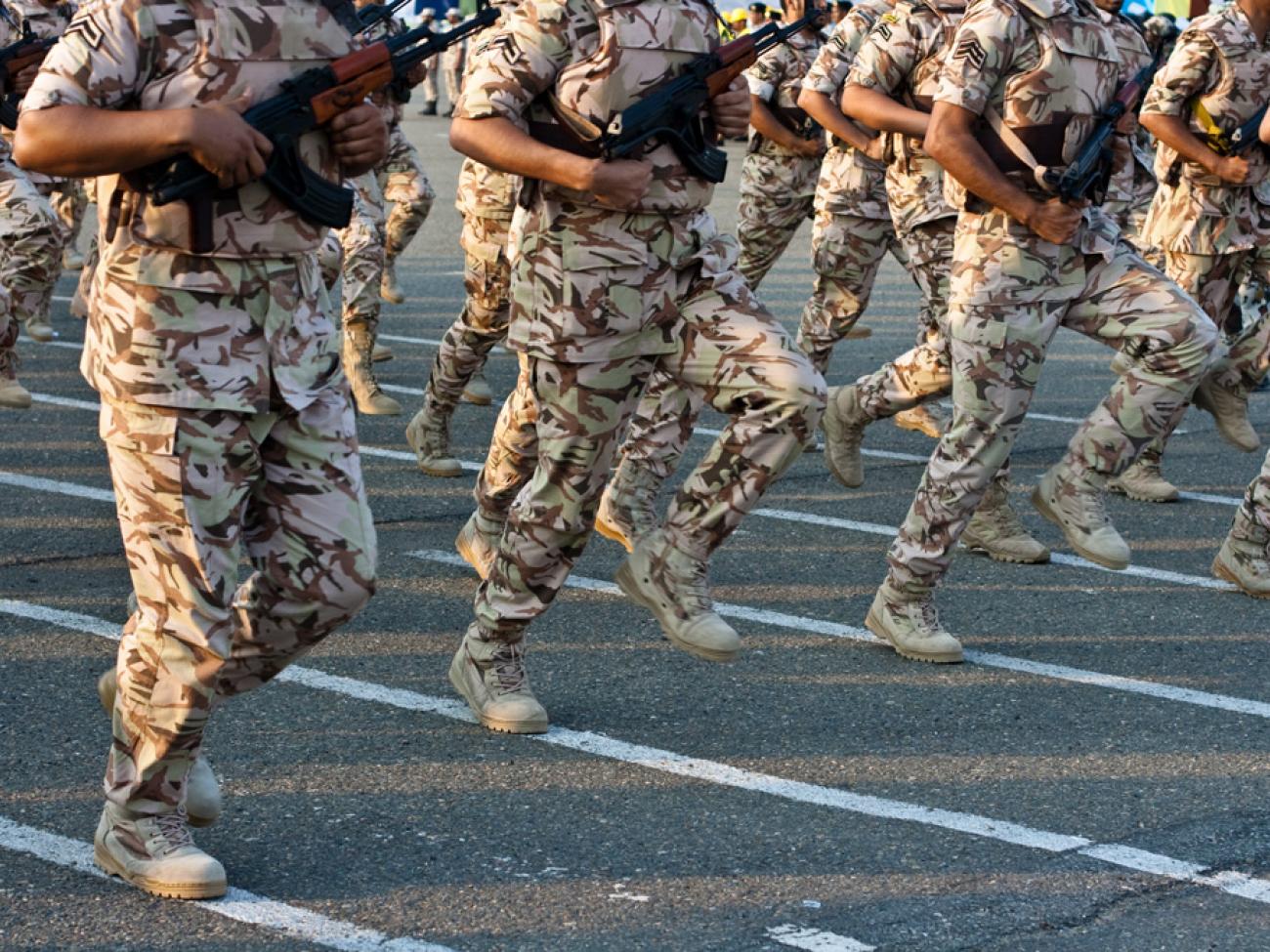Statistics Canada latest trade data releases show that Canada is heading toward a record year in rifle and ammunition exports to Saudi Arabia, despite the kingdom’s continued war in Yemen.
According to the latest numbers as of October of 2018, Canada has exported 21,101 rifles to Saudi Arabia, just behind the 2017 total of 21,778, and ahead of the 2016 total of 19,804. Should November or December repeat the numbers exported in the preceding two months – 4,000 each month – Canada will set a new record in its rifles and ammunitions exports to Saudi Arabia.
This would make the years of 2018, 2017 and 2016 the highest recorded years of rifle and ammunition sales to Saudi Arabia since the data was first tracked in 1989 – years that directly coincide with the beginning of the Saudi-led coalition intervention and subsequent war in Yemen.
Facing one of the world’s worst humanitarian crises, 22.2 million people in Yemen are estimated to be facing widespread famine and starvation, with 8.4 million in severe need. A recent international report cites the on-going armed conflict as the primary driver of the humanitarian disaster. The conflict has left more than 2 million people displaced and resulted in 17,000 direct civilian casualties of the fighting. One study estimates that around 85,000 children have starved to death since the conflict began.
As the worldwide chorus of opposition to the war in Yemen grows, the Trudeau administration continues to hold the line that its ministers are pushing for a ceasefire in Yemen and that Canadian arms are not being used in the war. In an exchange in the House of Commons in late November, Pamela Goldsmith-Jones, parliamentary secretary to the minister of Foreign Affairs, stated: “We require and expect that Canadian arms exports are used in a way that fully respects human rights. If there is evidence that Canadians arms are being misused or have been diverted, we will suspend those export permits as we have done in the past.”
Anthony Fenton, a researcher at York University, believes evidence shows that this is not the case.
“So far, what I and others have seen confirmation of in Yemen are three different varieties of the Winnipeg, Manitoba-made sniper rifles produced by PGW Defence Technology Inc. There have been a multitude of sightings of PGW rifles either in Saudi possession in/around Yemen, and/or in the possession of Yemeni rebels who have commandeered them as ‘trophies’ from Saudi soldiers,” Fenton said.
Global Affairs Canada holds the position that any evidence of Canadian-made rifles being used in Yemen would result in a suspension of export permits to Saudi Arabia.
“Canada remains deeply concerned by the ongoing conflict in Yemen and its humanitarian impact on civilians, particularly women and children, who continue to bear the brunt of the fighting,” said John Babcock, a spokesperson for Global Affairs Canada. “We require and expect that Canadian arms exports are used in a way that fully respects human rights. That’s why our government is committed to a stronger and more rigorous arms export system and to the Arms Trade Treaty. Canada does not export items destined for Yemen or that will be used in Yemen due to the impact on regional stability and security. Careful attention is paid to the potential for the diversion of Canadian exports to the conflict in Yemen. If there is evidence that Canadian arms are being misused or have been diverted, Minister Freeland will suspend those export permits while an investigation proceeds, as she has done in the past.”
Fenton and other observers note that the major issue with verification lies in the way that the export permits are issued. Right now, the Canadian government contends that the export permits allow them to monitor exported arms use and ensure that Canadian-made weapons are not being used in the vicious war in Yemen.
However, a recent report by The Guardian showed that there was a widespread lack of transparency with export permits that allowed U.S. and U.K. weapons to end up in the hands of soldiers in Yemen.
In 2016, an image surfaced showing a Houthi rebel holding a Canadian-made PGW rifle. Global Affairs Canada launched an investigation following that revelation. To date, that investigation has never been made public.
Canada is not the only country that has faced criticism over arms exports to Saudi Arabia during the conflict. Denmark, Austria, Holland, Spain and Germany have all heeded calls to stop exporting arms and have since ceased issuing export permits. Last week, the U.S. Senate voted to end American assistance to Saudi Arabia in the war as well.
The Trudeau government has yet to cancel Canadian arms exports even amidst the controversial LAV deal which saw Canada on track to export $15-billion worth of light armoured vehicles to Saudi Arabia. This year’s numbers will make Saudi Arabia the second largest importer of Canadian-made rifles behind the United States.
Ryan Donnelly is a freelance writer from Southern Ontario with an academic background in Canadian public policy. He’s also a former human rights worker and adovcate who has written on issues of Canadian foreign policy.
Photo: flickr/CC2.0



